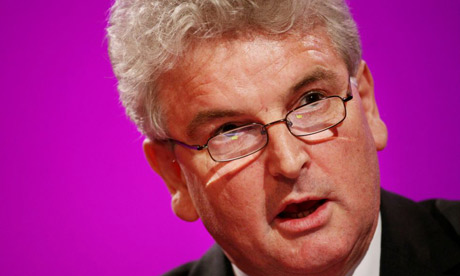
The defence secretary, Des Browne, has gone to the high court in an attempt to prevent coroners criticising the Ministry of Defence during military inquests.
Government lawyers presented papers to the Royal Courts of Justice asking for a court order banning coroners from accusing the MoD of “serious failings” when recording verdicts on service personnel deaths.
The defence secretary claimed the phrase was tantamount to blaming the government for the deaths of servicemen and might be used against the MoD by families seeking to sue for compensation.
Cripes. Don’t tell Cheney and Gates! They’d love this.















Something really stupid is going on in the coroners office. People don’t medically die from “serious failings” — they die of heat stroke. Its for some other non-medical function to find out why the soldier died of heat stroke.
And along those lines, other than internal investigations for what is good for the corp–basically, military personnel dying in the line of duty should have a death benefit package appropriate to care for their surviving family members so that lawsuits seeking compensation were not needed. I thought the UK already provided a pretty good set of social safety net programs (free health, public education and what not) so I don’t know what is missing. Of course, quite a lot of this missing in the USA–so if Cheney and Gates look this issue over, hopefully they will try to see how to benefit our fallen heroes?
That guys has a HORRIBLE toupee.
#1 – Haven’t been inside a VA hospital in a while, eh?
#3–what would visiting a VA hospital got to do with death benefits for the family?
But, yes, the care I get at VA is quite good once you actually get it. The military loves lines.
Point was Cheney and Gates are likely to care as much for “fallen heroes” as they do the survivors.
“Mediocre” comes to mind.
@1 “Something really stupid is going on in the coroners office. People don’t medically die from “serious failings” — they die of heat stroke. Its for some other non-medical function to find out why the soldier died of heat stroke…”
I don’t know the technical definition of a “coroner” is but it does seem to be non medical in Britain. When I’ve seen the word used by an American it seems to be similar to a Medical Examiner who just give the facts while in the UK they seem to be more like judges who hear evidence and make judgments on the balance of probability.
#1, Bobbo,
I am not as sure about the British Coroner’s Inquest, but the primary intent is to discover the cause of death in a narrow, yet enlightening way.
In this case, the fact that the soldier was on record as not feeling well but was ordered out on patrol is relevant. Where the patrol went is not. The fact that the temperature might be 140 F and he had to wear body armor and carry 75 lbs of equipment would be relevant. What that equipment consisted of would not be relevant.
The inquest is a sort of mini trial presided over by the Coroner. A small jury hears the evidence. All parties may be represented by a lawyer. That would include a prosecutor as well as the family, the British Army, the Captain and maybe Sargent, and anyone else who might be named in the finding.
Inquests do not find fault or guilt. In this case the most they could do would be to find the Private died because he had not acclimated himself to the heat and was forced to go on patrol while overheating under his equipment. His distress was overlooked by his superiors who did not allow him to cool down.
*
I sat on an Inquest 20 some years ago in Ontario. Because this was an industrial accident, the jury was to make recommendations to prevent it from happening again. Even to this day the pictures of the dead man haunt me. Yet I strongly believed the man was the cause of his own death for hanging on a ladder on a heavy grader with one hand while drinking a coffee with the other. He fell under the rear wheels and was crushed. It was difficult trying to think of recommendations for people not to win a Darwin Award.